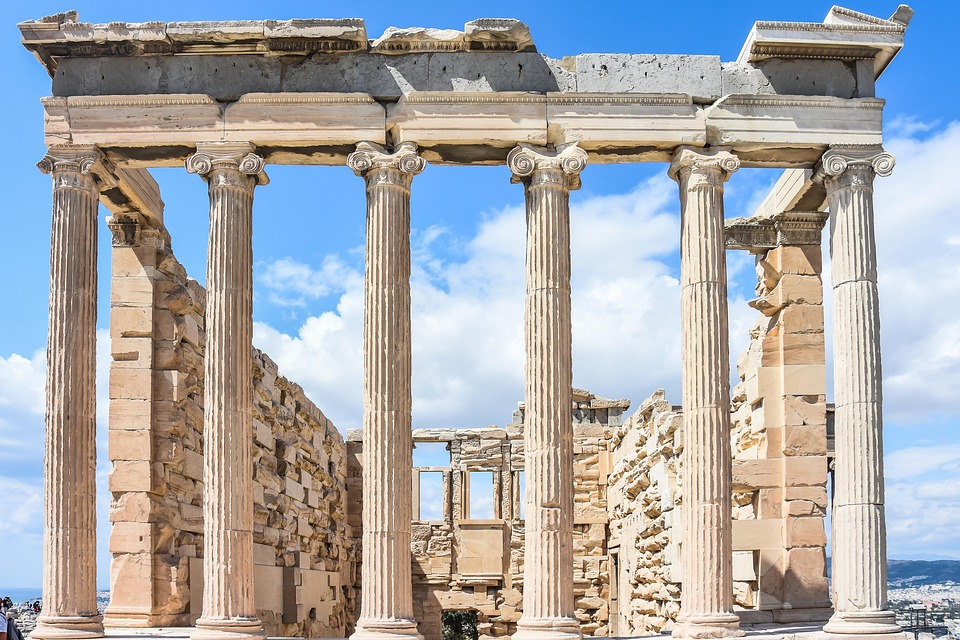Illyrians and Their Legacy: The Roots of Kosovo’s National Pride
Introduction
The Illyrians, an ancient group of tribes that inhabited the western Balkans, significantly influenced the cultural and historical landscape of the region. From the territory of present-day Albania to parts of Serbia, Montenegro, Bosnia, and Kosovo, the Illyrians played a crucial role in shaping the identity and heritage of these areas. In Kosovo, their legacy is particularly significant, contributing to a sense of national pride among its people. This article explores the Illyrian heritage, its historical context, and its continued relevance in contemporary Kosovo.
Historical Overview of the Illyrians
The Illyrians were a group of tribes known to have existed from around the 4th century BC, with some evidence suggesting their presence even earlier. They were primarily pastoralists and warriors, known for their fierce independence and resistance to external influences, including the nearby Greeks and later the Romans. Their society was organized into tribal confederations, and their culture thrived through trade, warfare, and the influence of surrounding civilizations.
The Geography of Illyria
Illyria encompassed a vast territory situated along the eastern Adriatic Sea, covering modern-day Albania, Kosovo, Montenegro, Bosnia and Herzegovina, and parts of Croatia and Serbia. The geographic features—mountains, rivers, and a rugged coastline—shaped the Illyrians’ way of life and opportunities for trade with the outside world.
Tribal Structure and Society
Illyrian society operated around tribal affiliations, each with its leaders and traditions. The tribes were often engaged in conflict, but they also formed alliances for mutual benefit. Archaeological findings suggest a rich cultural life, including elaborate burial customs, metallurgy, and ceramics that displayed a blend of indigenous traditions and influences from neighboring regions.
The Illyrians and Their Influence on Kosovo
Ancient Settlements
In the area that is now Kosovo, several Illyrian tribes, including the Dardani, settled and established communities. The Dardani were particularly influential, with their territory centered around the region where the modern capital of Kosovo, Pristina, now stands. Ancient sources indicate that Dardania was a significant center of Illyrian culture, trade, and political organization.
Roman Conquest
The Roman conquest of Illyria in the 1st century BC marked a significant turning point in the history of the Illyrians. While Roman rule led to the assimilation and gradual disappearance of many Illyrian tribes, aspects of Illyrian culture persisted. The Roman administration incorporated Illyrian territories into larger provincial units, introducing new architectural, political, and social structures that blended with local traditions.
The Legacy of the Illyrians
Cultural Heritage
The Illyrians left behind a rich cultural legacy that resonates in various forms today, particularly through language, tradition, and folklore. The remnants of their presence can be seen in numerous archaeological sites throughout Kosovo, including burial mounds, fortifications, and artifacts.
Language and Ethnolinguistic Aspects
Some historians argue that the modern Albanian language has roots in the Illyrian language, giving rise to claims of continuity between the Illyrians and contemporary Albanian identity. This linguistic connection is a cornerstone of national pride in Kosovo, as it underlines a historical affinity that extends back over two millennia.
National Identity and Pride
In Kosovo, the Illyrians are often heralded as the ancestors of the Albanian people, a narrative that plays a pivotal role in the contemporary construction of national identity. The notion that modern Albanians are direct descendants of the Illyrians reinforces a sense of continuity, resilience, and cultural integrity amidst historical challenges.
The Role of Historical Narratives
The portrayal of Illyrians has been woven into the broader historical narratives of Kosovo and Albania, often used to promote unity and national pride, particularly during periods of conflict and political upheaval. Their legacy serves as a symbol of endurance and a source of inspiration, reflecting the community’s aspirations for sovereignty and recognition.
Modern Symbolism
The image of the Illyrians has been appropriated in various ways in contemporary Kosovo. Their warriors are often invoked in political rhetoric, and cultural symbols associated with the Illyrians are used in art, literature, and public discourse. Statues, monuments, and themed festivals celebrate this ancient heritage, fostering a shared cultural consciousness.
Conclusion
The Illyrian legacy remains a powerful thread in the tapestry of Kosovo’s national identity. By examining their history, cultural contributions, and lasting influence, it becomes clear that the Illyrians are not just a relic of the past but a living part of the national pride that Bolsters the identity of the people of Kosovo today. As Kosovo continues to navigate its path in the modern world, the resonance of Illyrian heritage serves as a reminder of the deep roots that nourish its cultural and national identity.
References
- L. Shpuza, Illyrian Legacy in the Culture of Kosovo (Tirana: Institute of Albanian Studies, 2020).
- E. Vasiliev, History of the Illyrians (Sofia: Bulgarian Academy of Sciences, 2019).
- G. Tsokas, Illyria and the Adriatic: Cultural Interactions in Antiquity (Athens: Greek Foundation for Balkan Studies, 2018).
- B. Lami, Kosovo’s History and Its Illyrian Heritage (Pristina: University of Kosovo Press, 2017).
- J. Koliqi, The Role of Illyrians in the Formation of Albanian Identity (Tirana: Albanian Institute of History, 2016).
This article is a comprehensive exploration of the Illyrians and their enduring legacy in the context of Kosovo’s national pride. It spans various aspects, including historical overview, cultural impact, and modern symbolism, providing a holistic understanding of this ancient people’s significance today. If you need additional details or have specific requests for expansions, let me know!

























Add Comment